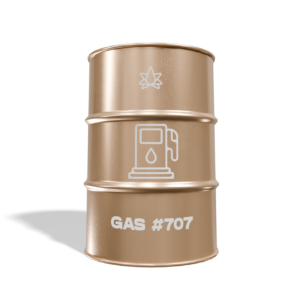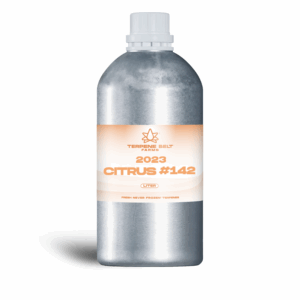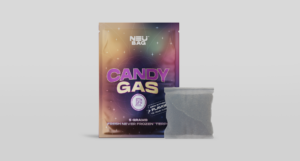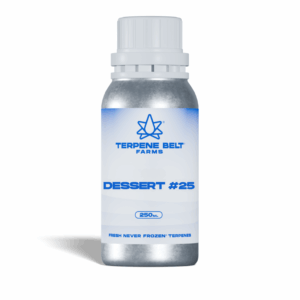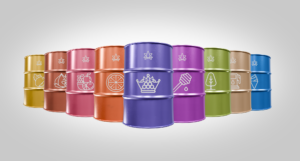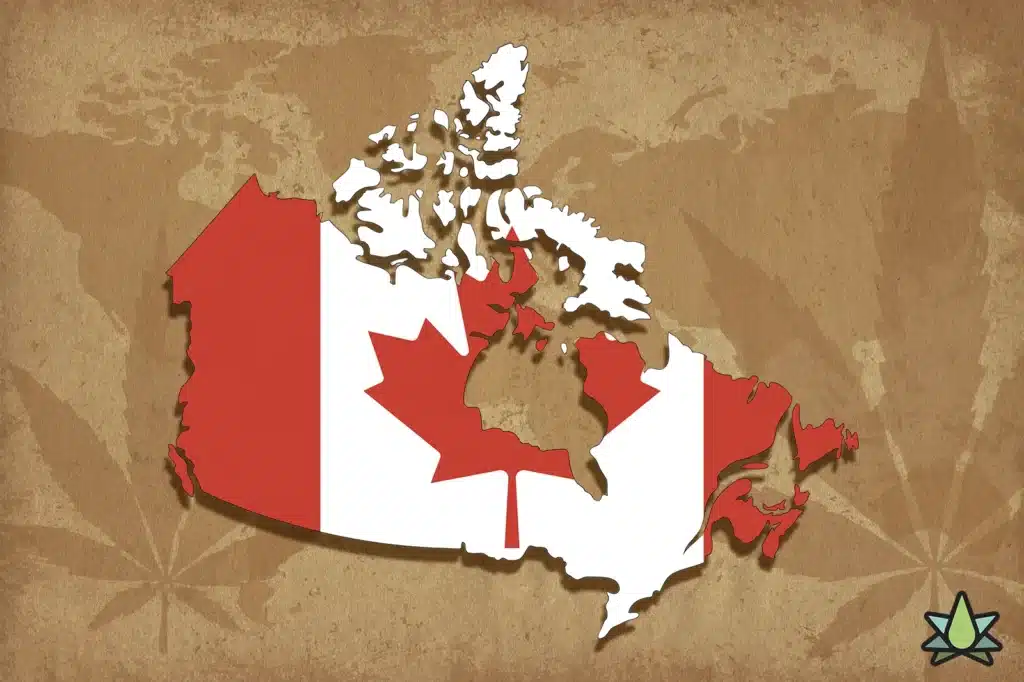
Quick Answer: Yes, terpenes are legal to buy and sell in Canada. Both cannabis-derived and botanical terpenes can be purchased for use in cannabis products, provided they meet Health Canada’s quality standards and are sold through licensed channels for cannabis applications.
Key Takeaways
- Cannabis-derived and botanical terpenes are both legal when properly sourced and documented
- Licensed processors can integrate terpenes under strict regulatory guidelines
- Each province maintains unique retail structures while terpenes remain federally regulated
- Quality standards require Food Chemicals Codex compliance for non-cannabis terpenes
- Import permits are mandatory for international terpene shipments
Canada’s progressive cannabis framework has created one of the world’s most sophisticated markets for terpene integration in cannabis products. Since federal legalization in October 2018, Canadian formulators have worked within a regulatory structure that presents both opportunities and compliance challenges for terpene procurement. With cannabis extracts generating over $2.1 billion in sales annually and terpene-rich products commanding 20-30% premium prices over standard offerings, sourcing quality terpenes through legal channels has become critical for product developers, R&D teams, and procurement managers seeking consistent, compliant inputs.
The complexity of Canada’s dual medical-recreational system, combined with provincial variations in distribution and product acceptance, creates unique challenges for formulation teams. Product developers must balance federal compliance requirements with provincial market preferences, all while maintaining batch consistency across production runs that may serve multiple jurisdictions. This regulatory maze has led many producers to seek suppliers who provide not just quality terpenes, but comprehensive compliance support and technical documentation.
Terpene Belt Farms addresses these challenges through a dual-category approach that serves both authenticity requirements and practical formulation needs. Our Native Cannabis Terpenes deliver 100% Cannabis Sativa L-derived profiles for brands demanding absolute authenticity, while our Enhanced Natural blends provide flexibility for applications requiring specific customization or scale. This transparent categorization helps Canadian formulators select appropriate terpene solutions while maintaining full regulatory compliance across provincial jurisdictions. Each profile undergoes rigorous testing to meet Health Canada’s exacting standards, with documentation packages tailored specifically for Canadian regulatory submissions.
Federal Terpene Regulations Under the Cannabis Act
The Cannabis Act and its accompanying Cannabis Regulations establish the federal framework governing terpene use in cannabis products throughout Canada. Under these regulations, terpenes occupy a unique position as permitted ingredients that can be incorporated into cannabis extracts, edibles, and topicals when they meet specific quality and sourcing requirements. The regulatory structure reflects Health Canada’s approach of treating terpenes as both natural cannabis constituents and potential flavoring agents, depending on their source and application.
Health Canada’s approach to terpene regulation balances product innovation with consumer safety through a tiered compliance system. The Cannabis Regulations explicitly permit the use of terpenes in cannabis extracts, including those intended for inhalation, provided they meet established quality standards. For cannabis-derived terpenes extracted directly from Cannabis sativa plants, integration into products is straightforward as these compounds are considered part of the cannabis plant material itself. This recognition has driven significant investment in cannabis-specific extraction technologies across the Canadian market.
Non-cannabis botanical terpenes face additional requirements when used in inhaled cannabis extracts. According to amendments published in the Canada Gazette, these flavoring agents must be identical to substances naturally produced by or found in cannabis plants. This means limonene derived from citrus peels or pinene extracted from pine trees can be used in cannabis products because these same compounds naturally occur in cannabis. However, the regulations prohibit flavoring agents that would make products appeal to youth or resemble confectionery, dessert, or soft drink flavors. This restriction has led to careful consideration of terpene naming conventions and profile descriptions in the Canadian market.
Quality specifications represent another critical compliance factor that directly impacts procurement decisions. All non-cannabis-derived terpenes used in cannabis products must meet the standards outlined in the Food Chemicals Codex or the Specifications for Flavoring. These requirements maintain pharmaceutical-grade purity without contaminants that could pose health risks. Licensed processors must maintain detailed records demonstrating their terpene inputs meet these specifications, with documentation available for Health Canada inspection. Our purchasable Sample Kits allow Canadian formulators to verify quality and compliance before committing to bulk quantities, providing a strategic entry point for R&D teams evaluating new profiles.
The Cannabis Regulations Section 101.4 mandates that cannabinoids and terpenes must be uniformly distributed throughout cannabis extracts and topicals. This requirement extends beyond simple mixing, demanding validated processes that ensure consistent distribution at the molecular level. For formulators, this means selecting terpene suppliers who provide not just quality products, but technical support for achieving and maintaining uniform distribution. Terpene Belt Farms’ premium terpene profiles provide the consistency needed to meet these strict distribution requirements, with batch-to-batch variation typically under ±2%.
Provincial Cannabis Regulations and Terpene Products
While federal law establishes the baseline framework for terpene use in cannabis products, each province and territory maintains authority over retail distribution and additional restrictions. These provincial variations directly impact formulators developing products for specific regional markets or planning national distribution strategies. The patchwork of provincial regulations has created a complex matrix of requirements that successful brands must master to achieve national scale.
Ontario
Ontario’s cannabis market, generating over $160 million monthly through the Ontario Cannabis Store (OCS) and authorized retailers, represents Canada’s largest opportunity for terpene-rich products. The Ontario government’s cannabis laws permit the sale of all federally approved cannabis product categories, including terpene-rich extracts, vape cartridges, and concentrates. Recent OCS product launches highlight strong consumer demand for terpene-forward offerings, with live resin products and strain-specific profiles commanding premium shelf space and achieving 40% higher average selling prices than standard distillate products.
The province’s sophisticated consumer base has driven demand for education around terpene effects and profiles. Ontario retailers report that products with detailed terpene information sell 25% faster than those without, creating opportunities for brands that invest in terpene education and transparency. Our exclusive terpene oils provide the distinctive profiles Ontario consumers seek, while our technical documentation supports the educational initiatives retailers value.
British Columbia
British Columbia operates a hybrid model combining government BC Cannabis Stores with private retailers, creating diverse channels for terpene-rich products. The province’s established cannabis culture drives sophisticated consumer demand for authentic terpene profiles and premium extracts. BC’s proximity to major cultivation regions and extraction facilities has fostered a robust ecosystem for terpene innovation, with over 200 licensed processors operating in the province.
The BC market shows particular affinity for craft cannabis products featuring unique terpene expressions. Small-batch processors in the province frequently seek specialized terpene profiles to differentiate their offerings. Our fresh never frozen terpene profiles align perfectly with BC’s craft cannabis ethos, providing the authenticity and quality these discriminating producers demand.
Alberta
With the minimum age set at 18 and a fully privatized retail system featuring over 750 stores, Alberta offers unique market dynamics for cannabis products. The province’s regulations permit consumption in some public spaces where tobacco smoking is allowed, potentially expanding occasions for terpene-rich product use. Alberta Gaming, Liquor and Cannabis (AGLC) oversees distribution to private retailers, who have shown strong interest in differentiated products featuring unique terpene profiles.
Alberta’s competitive retail environment has driven innovation in product formats and terpene applications. Retailers report that products with novel terpene combinations or functional positioning achieve better sell-through rates. For formulators targeting Alberta, our Standard Product lines offer reliable profiles that can be customized for market differentiation.
Quebec
Quebec’s government-operated Société québécoise du cannabis (SQDC) maintains stricter controls on certain product categories, reflecting the province’s more conservative approach to cannabis regulation. The province prohibits home cultivation and has implemented specific restrictions on product potency and formats. However, terpene-rich products that meet provincial requirements are available through SQDC outlets, with particular success in the concentrate and vape categories.
Despite regulatory constraints, Quebec consumers show strong interest in terpene education and product quality. SQDC’s product curation process favors suppliers who can demonstrate consistent quality and comprehensive documentation. Formulators targeting Quebec should align their terpene applications with the province’s preference for medical-adjacent positioning and scientific credibility.
Other Provinces and Territories
According to Health Canada’s provincial overview, Manitoba prohibits home cultivation but allows private retail sales with robust selection of terpene-rich products. Saskatchewan’s private retail model includes approximately 60 licensed stores carrying diverse product lines. Atlantic provinces generally operate through government monopolies with varying degrees of product selection, though all show growing interest in terpene-forward offerings. The territories maintain smaller markets but follow federal guidelines for terpene-containing products, with logistics representing the primary challenge for consistent supply.
Cannabis and Hemp Regulations for Canada
The regulatory distinction between cannabis, hemp, and isolated terpenes creates a complex compliance environment that affects every aspect of product development and distribution.
Industrial hemp, defined as Cannabis sativa L containing less than 0.3% THC, operates under the Industrial Hemp Regulations rather than the Cannabis Act. This distinction matters for terpene sourcing, as hemp-derived terpenes may offer certain advantages in terms of import procedures and documentation requirements. However, once incorporated into cannabis products, all terpenes must meet the same quality standards regardless of source.
The medical cannabis framework, established in 2001 and now operating parallel to the recreational system, provides additional pathways for terpene applications. Medical document holders can access products not available in recreational markets, including custom formulations with specific terpene profiles. This dual system creates opportunities for specialized product development targeting therapeutic applications.
For beverage manufacturers and edible producers, our Water Soluble terpene formulations solve the critical challenge of oil-water incompatibility. These advanced formulations ensure uniform distribution and consistent dosing in water-based products, addressing one of the Canadian edibles market’s most persistent technical challenges.
Recent Legislative Attempts
Canada’s cannabis regulatory framework continues evolving through both legislative review and regulatory amendments. The recent 2024 legislative review of the Cannabis Act identified opportunities for regulatory streamlining without compromising public health objectives. Industry submissions highlighted the need for clearer guidance on terpene standards and more flexibility in product innovation.
The March 2025 regulatory amendments introduced several changes affecting terpene-containing products. These include streamlined testing requirements for certain product categories and clarifications around flavoring agent restrictions. The amendments reflect Health Canada’s recognition that the industry has matured significantly since legalization, with established quality systems and proven safety records.
One significant development involves the proposed single national excise stamp system, which would replace the current provincial stamp requirements. This change would simplify inventory management for products sold across multiple provinces, reducing complexity for brands operating nationally. The cannabis industry estimates this could reduce operational costs by 15-20% for multi-provincial operators.
Health Canada has also signaled openness to expanding permitted ingredients in cannabis products, potentially including additional botanical compounds that could complement terpene profiles. These discussions remain preliminary, but indicate a regulatory environment that may become more accommodating to innovation while maintaining safety standards.
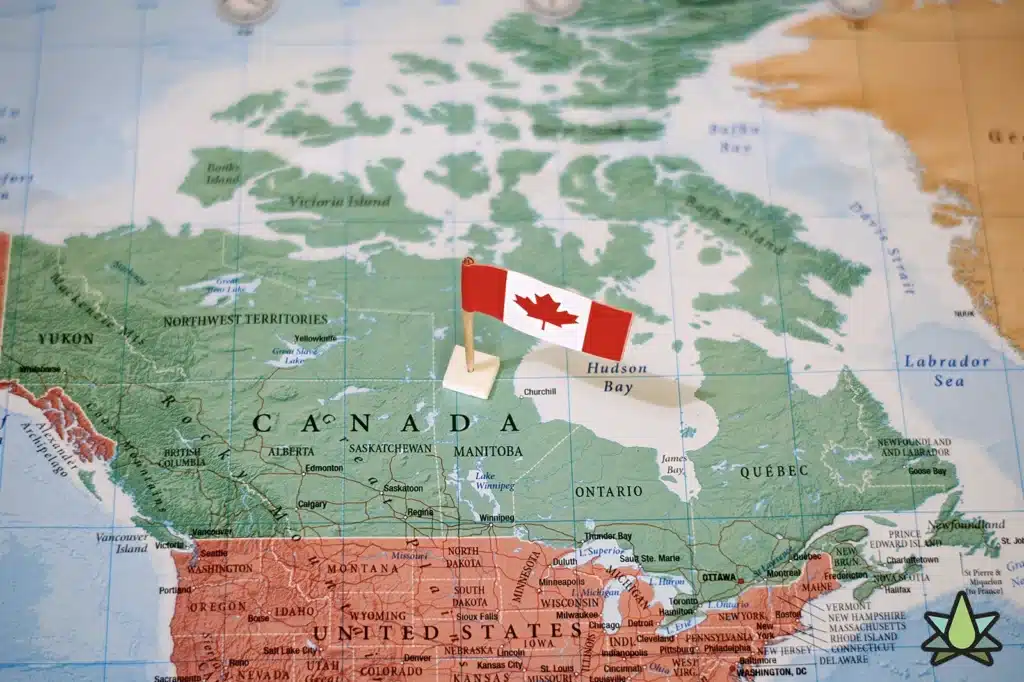
Importing Terpenes into Canada
International procurement of terpenes requires careful adherence to Health Canada’s import regulations and the Cannabis Act’s strict controls. The complexity of import procedures varies significantly depending on terpene source and intended application, making supplier selection critical for maintaining compliant supply chains.
Only holders of valid cannabis licenses can import cannabis-derived materials, including terpenes extracted from cannabis plants, and solely for medical or scientific purposes. This restriction has led many Canadian processors to source botanical terpenes for certain applications, though these must still meet stringent quality requirements. The import permit process begins with a detailed application to Health Canada specifying the type and quantity of terpenes, their intended use, and comprehensive quality documentation.
Each shipment requires a separate permit, with Health Canada evaluating applications based on public health and safety considerations. Processing times can extend several weeks, making advance planning essential for maintaining consistent supply chains. Recent data shows permit approval rates exceed 90% for properly documented applications, but the 10% rejection rate typically stems from incomplete documentation or quality concerns.
For hemp-derived terpenes from Cannabis sativa L plants containing less than 0.3% THC, the regulatory pathway follows the Industrial Hemp Regulations. However, importers must still demonstrate that the source material meets Canadian standards and that extraction processes comply with quality requirements. Our hemp-derived profiles are specifically designed to meet these compliance standards, with documentation packages that streamline the import process.
Documentation requirements for terpene imports include certificates of analysis confirming purity and composition, manufacturing process descriptions, and attestations that materials are free from contaminants. The Canada Border Services Agency (CBSA) works with Health Canada to enforce these requirements at ports of entry, with non-compliant shipments subject to seizure and destruction. In 2024, CBSA reported seizing over $2 million worth of non-compliant terpene shipments, highlighting the importance of proper documentation.
For small-scale cannabis operations seeking to enhance their products efficiently, our NEU Bags provide revolutionary flower infusion technology. This scalable solution maintains product integrity while delivering uniform terpene distribution, eliminating the complexity of liquid terpene handling for smaller producers.
Quality Standards for Terpenes in Cannabis Products
Maintaining consistent quality standards represents a fundamental requirement for terpenes used in Canadian cannabis products. These standards protect consumer safety while ensuring product reliability across batches and production runs. The multi-tiered testing requirements create significant operational overhead for producers, making supplier quality systems increasingly important.
The Food Chemicals Codex (FCC) provides the primary reference for botanical terpene specifications, as outlined in Health Canada’s regulatory framework. Terpenes must be tested for heavy metals (with limits typically under 10ppm for lead, mercury, cadmium, and arsenic), residual solvents (following USP <467> guidelines), microbial contamination (including specific limits for E. coli, Salmonella, and aflatoxins), and pesticide residues (testing for over 96 compounds). Documentation demonstrating compliance with these standards must be maintained for a minimum of seven years and available for regulatory inspection.
For cannabis-derived terpenes, quality requirements align with broader cannabis testing regulations. Licensed producers must test for cannabinoid content to verify terpene preparations contain no detectable THC if marketed as isolated terpenes. The detection limit for THC in isolated terpene products is typically 10ppm, requiring sophisticated analytical methods. Microbial testing follows standards established for cannabis extracts, with strict limits on yeast, mold, and pathogenic bacteria.
Stability testing has become a critical quality consideration for terpene-rich products, particularly given Canada’s diverse climate conditions. Volatile terpenes can degrade during storage, altering product profiles and potentially affecting consumer experiences. Best practices for terpene preservation include maintaining storage temperatures below 4°C, using amber glass or specialized barrier packaging, and implementing nitrogen headspace to prevent oxidation. Our technical team has developed stability protocols that maintain terpene profiles within 5% of initial values for 24 months under proper storage conditions.
Batch-to-batch consistency requirements under Section 101.4 of the Cannabis Regulations demand sophisticated quality control processes. Licensed processors must demonstrate that terpene distribution remains uniform throughout products, requiring analytical testing at multiple points during production. This makes sourcing from suppliers with rigorous quality systems essential for maintaining compliance. Our Exclusive Oils Sampler allows formulators to verify this consistency across multiple batches before scaling to production volumes.
Business Licensing Requirements for Terpene Sales
Operating within Canada’s legal cannabis framework requires appropriate licensing for businesses handling terpenes intended for cannabis products. The licensing structure varies depending on the business model and intended terpene applications, with significant differences in complexity and cost between license types.
Cannabis processors holding valid Health Canada licenses can purchase and use terpenes in their productions without additional authorization, provided they maintain proper documentation and meet quality standards. These licenses, which cost between $15,000-$40,000 in application fees alone, permit the transformation of cannabis and terpenes into finished products for sale through provincial distribution systems. The application process involves extensive security clearances, facility requirements, and quality assurance protocols that typically take 6-12 months to complete, with only 40% of applications approved on first submission.
Companies seeking to supply terpenes to licensed cannabis processors don’t necessarily need cannabis licenses themselves if they’re providing botanical terpenes or operating as ingredient suppliers. However, they must provide products that meet all applicable quality standards and comprehensive documentation to support their customers’ compliance obligations. This has created a specialized B2B market for terpene suppliers who understand cannabis industry requirements. Our white-label partnerships operate under this model, providing technical inputs while licensed processors handle final product manufacturing.
Analytical testing laboratories require specific licensing under the Cannabis Act to test cannabis products containing terpenes. These facilities must demonstrate competency in terpene analysis methods, including GC-MS, GC-FID, and HPLC techniques, while maintaining ISO 17025 accreditation. Their certificates of analysis provide critical documentation for product release and regulatory compliance, with testing costs typically ranging from $200-$500 per terpene profile analysis.
Import/export licenses are required for any international terpene transactions involving cannabis-derived materials, as specified in Health Canada’s import/export guidelines. These permits are shipment-specific and require detailed justification for medical or scientific purposes. Companies building international supply chains must factor permit processing times of 30-60 days into their procurement planning.
Labeling and Marketing Terpenes in Canada
The promotion and labeling of terpene-containing cannabis products face strict limitations under the Cannabis Act’s advertising restrictions. These rules significantly impact how formulators can communicate terpene benefits to consumers and differentiate products in the market, creating challenges for brands seeking to educate consumers about terpene value.
Product labels can include factual information about terpene content, including specific terpene percentages and strain names that reference terpene profiles. Terms like “limonene-rich” or “high in myrcene” are acceptable as factual descriptors, provided they’re supported by analytical data. However, health claims linking terpenes to specific therapeutic effects are prohibited unless authorized through Health Canada’s health products framework. This restriction has led to creative approaches in product naming and description that convey terpene benefits without making explicit claims.
Marketing restrictions prohibit lifestyle advertising or appeals to youth, limiting promotional opportunities for terpene-rich products. Educational content about terpenes must be informational rather than promotional, focusing on factual characteristics rather than experiential claims. Scientific information about terpene profiles can be shared in appropriate contexts without violating promotional restrictions, particularly when presented in peer-reviewed formats or educational settings.
Brand-preference promotion allows some flexibility in describing production methods and terpene sourcing. Phrases like “cannabis-derived terpenes,” “botanical terpene blend,” or “strain-specific profile” can differentiate products while remaining compliant. Companies can also highlight their extraction methods or quality standards as long as communications remain factual and avoid lifestyle associations. Our Premium Oils Sampler includes compliant label templates that help brands communicate terpene value within regulatory constraints.
The regulations permit informational promotion in age-gated environments, creating opportunities for detailed terpene education at retail locations or through direct marketing to verified adults. This allows for more comprehensive communication about terpene selection, effects, and applications within appropriate channels. Progressive retailers have developed terpene education programs that drive sales while maintaining compliance, with some reporting 30% higher basket sizes for customers who receive terpene education.
Testing and Compliance Requirements
Comprehensive testing protocols verify terpene-containing cannabis products meet safety standards and label claims. These requirements apply throughout the production chain, from raw terpene inputs through finished products, creating multiple quality gates that must be managed effectively.
Incoming terpene materials must be tested for identity and purity before use in cannabis products. Identity testing confirms that terpenes match their labeled profiles through techniques like GC-MS fingerprinting, while purity testing screens for contaminants and adulterants. Licensed processors must maintain certificates of analysis for all terpene lots and have protocols for quarantine and rejection of non-compliant materials. Industry data suggests that 5-10% of terpene shipments fail initial quality screening, highlighting the importance of supplier qualification.
In-process testing monitors terpene distribution during manufacturing, particularly critical for products claiming specific terpene percentages or strain-specific profiles. Analytical methods must be validated for accuracy and precision, with testing performed by qualified personnel using appropriate equipment. Formulation guides help processors optimize testing protocols for different product formats. Common challenges include terpene volatility during processing, matrix interference in complex formulations, and achieving representative sampling in viscous products.
Finished product testing confirms that terpene content matches label claims and remains uniformly distributed. For inhaled products, additional testing may be required to verify that heating doesn’t produce harmful degradation products. Recent studies have identified temperature thresholds for common terpenes, with most remaining stable below 180°C but showing degradation above 220°C. Stability testing tracks terpene levels over time to establish appropriate expiration dates, with typical shelf lives ranging from 12-24 months depending on storage conditions and packaging.
Health Canada conducts regular inspections of licensed facilities, reviewing testing records and quality systems. Non-compliance can result in product recalls (averaging 2-3 terpene-related recalls annually), license suspension, or other enforcement actions. Maintaining robust documentation systems and validated testing methods remains essential for demonstrating ongoing compliance. Our Flavor Profile Oils Sampler includes batch documentation examples that meet Health Canada’s expectations for record-keeping.
Cross-Provincial Trade Considerations
Operating across multiple provinces requires managing interprovincial trade dynamics and regulatory variations that affect terpene-containing products. While cannabis remains federally regulated, provincial distribution monopolies create distinct market entry requirements that can significantly impact product launch strategies.
Each province maintains its own product call process for selecting items to carry in government stores or distribute to private retailers. These processes evaluate factors including product differentiation, price points, supply reliability, and increasingly, terpene profile uniqueness. Terpene profiles can serve as key differentiators in competitive product calls, particularly when backed by consistent quality and supply chain stability. Success rates in provincial product calls average 15-20%, but products with unique terpene profiles achieve acceptance rates closer to 30%.
Excise tax stamping requirements currently vary by province, requiring different stamps for products sold in different jurisdictions. The 2025 regulatory amendments indicate ongoing industry advocacy for a single national excise stamp to simplify interprovincial trade. Until this change is implemented, manufacturers must manage multiple SKUs for the same terpene-rich products across different provinces, increasing inventory complexity by an estimated 40%.
Provincial quality agreements may impose additional requirements beyond federal standards. Some provinces conduct their own product testing or require additional documentation for terpene-containing products. Ontario requires retention samples for all products, British Columbia mandates additional stability data, and Quebec requires French-language technical documentation. Early engagement with provincial regulators prevents delays in market entry.
Transportation between provinces must comply with federal shipping requirements for cannabis products. This includes secure shipping methods, detailed manifests, and tracking systems. Supply chain considerations become particularly important for perishable terpene products requiring controlled storage conditions. Cold chain breaks during interprovincial shipping can result in 10-15% terpene loss, making proper logistics planning essential.
Future Regulatory Developments
Canada’s cannabis regulatory framework continues evolving as the market matures and stakeholder feedback shapes policy adjustments. Several developments on the horizon may significantly affect terpene procurement and applications in the coming years.
The recent legislative review of the Cannabis Act, completed in 2024, identified opportunities for regulatory streamlining without compromising public health objectives. Industry submissions highlighted the need for clearer guidance on terpene standards, expanded permitted ingredients, and more flexibility in product innovation. While specific regulatory amendments are still being developed, the review signals potential improvements in terpene-related regulations, with draft amendments expected by Q3 2025.
Sustainability considerations are gaining prominence in cannabis regulations, driven by both government priorities and consumer demand. Future requirements may address environmental impacts of terpene extraction, packaging waste reduction (with potential requirements for recyclable or compostable packaging), and carbon footprint reporting. Sustainable extraction methods position forward-thinking companies for these anticipated changes. Early adopters of sustainable practices report 15-20% premium pricing power in environmentally conscious markets.
International harmonization efforts could affect import/export opportunities for terpenes. As more countries develop cannabis frameworks, mutual recognition agreements might facilitate cross-border trade in cannabis inputs including terpenes. Canadian companies with established quality systems will be well-positioned to capitalize on these opportunities, particularly given Canada’s reputation for regulatory rigor and quality standards.
Minor cannabinoid and terpene research continues expanding the scientific basis for cannabis compounds. Current studies at major Canadian universities are investigating terpene-cannabinoid interactions, bioavailability enhancement through terpene formulation, and potential therapeutic applications. This evidence base may support future regulatory refinements that recognize specific terpene applications or effects. Companies investing in research and development today are building competitive advantages for tomorrow’s market.
Ready to source premium, compliant terpenes for your cannabis formulations? Request samples from Terpene Belt Farms and experience the difference that authentic Cannabis Sativa L-derived profiles make in your products. Our technical team provides comprehensive support for Canadian regulatory compliance, from initial formulation through market launch.
Sources Used for This Article
Cannabis Act https://laws-lois.justice.gc.ca/eng/acts/c-24.5/
Cannabis Regulations https://laws-lois.justice.gc.ca/eng/regulations/sor-2018-144/
Regulations under the Cannabis Act – Canada.ca https://www.canada.ca/en/health-canada/services/drugs-medication/cannabis/laws-regulations/regulations-support-cannabis-act.html
Canada Gazette, Part 2, Volume 159, Number 6: Regulations Amending Certain Regulations Concerning Cannabis (Streamlining of Requirements) https://gazette.gc.ca/rp-pr/p2/2025/2025-03-12/html/sor-dors43-eng.html
Cannabis Legalization and Regulation – Justice Canada https://www.justice.gc.ca/eng/cj-jp/cannabis/
Import and export of cannabis by licence holders under the Cannabis Regulations – Canada.ca https://www.canada.ca/en/health-canada/services/cannabis-regulations-licensed-producers/import-export.html
Promotion of cannabis: Prohibitions and permissions in the Cannabis Act and Regulations – Canada.ca https://www.canada.ca/en/health-canada/services/drugs-medication/cannabis/laws-regulations/promotion-prohibitions.html
Authorized cannabis retailers in the provinces and territories – Canada.ca https://www.canada.ca/en/health-canada/services/drugs-medication/cannabis/laws-regulations/provinces-territories.html
Cannabis laws – Ontario.ca https://www.ontario.ca/page/cannabis-laws
Canada Gazette, Part 1, Volume 155, Number 25: Regulations Amending the Cannabis Regulations (Flavouring of Cannabis) https://gazette.gc.ca/rp-pr/p1/2021/2021-06-19/html/reg4-eng.html


